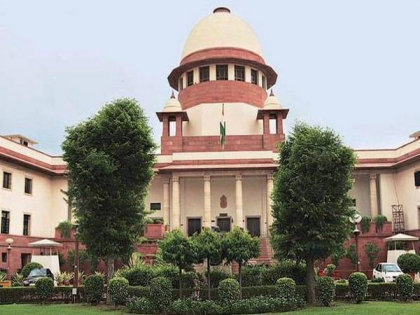Right to shelter doesn't mean right to government accomodation: SC
By ANI | Published: August 12, 2021 10:44 PM2021-08-12T22:44:22+5:302021-08-12T22:55:07+5:30
Setting aside a Punjab and Haryana High Court order, which had allowed a retired Intelligence Bureau (IB) officer to retain government accommodation, the Supreme Court on Thursday has observed that "right to shelter does not mean right to government accommodation".

Right to shelter doesn't mean right to government accomodation: SC
Setting aside a Punjab and Haryana High Court order, which had allowed a retired Intelligence Bureau (IB) officer to retain government accommodation, the Supreme Court on Thursday has observed that "right to shelter does not mean right to government accommodation".
A Bench of Justices Hemant Gupta and AS Bopanna observed that government accommodation is meant for serving officers and officials and not to the retirees as a benevolence and distribution of largesse.
While setting aside the High Court order, the court granted time for Onkar Nath Dhar, a Kashmiri migrant who retired on October 31, 2006 as an IB official in Delhi, to hand over vacant physical possession of the premises on or before October 31, 2021.
It also directed the Centre to submit a report of the action taken against the retired government officials who are in government accommodation post their retirement on or before November 15, 2021.
After retirement, Dhar had requested the government to allow him to retain the house allotted to him on a nominal licence fee till the circumstances prevailing in Jammu and Kashmir improve and the government makes it possible for him to return to his native place. However, notice was served to Dhar under Public Premises (Eviction of Unauthorised Occupant) Act, 1971.
Dhar challenged the notice before the Faridabad District Court which was rejected and thereafter approached the Punjab and Haryana High Court. The HC relying on the 2010 JL Koul judgment of Supreme Court, allowed his plea on the ground that it is not possible for him to return to his own State and the order of eviction shall be kept in abeyance. The order of the HC was later challenged by the Centre in the top court.
The apex court on Thursday in its verdict stated, "Dhar and such like persons are not from the poorest section of the migrants but have worked in the higher echelons of the bureaucracy. To say that they are enforcing their right to shelter only till such time the conditions are conducive for their safe return is wholly illusory."
"The right to shelter does not mean right to government accommodation. The government accommodation is meant for serving officers and officials and not to the retirees as a benevolence and distribution of largesse. Thus, we find that the orders passed by the High Court are absolutely without any basis and in the absence of any policy of allotment of government accommodation to a retired government servant, who may be victim of terrorism. The orders passed are wholly arbitrary and irrational," the apex court said.
Dhar had relied on the right of shelter, which is a fundamental right under Article 21 the Constitution.
The top court noted that Dhar was an officer of the Intelligence Bureau and has as drawn his salary and availed of alternative accommodation for 15 years after his retirement along with pension.
"A right to shelter is a fundamental right, that may not be disputed, but such a right of shelter is granted to millions of Indians who do not have shelter. A section of society, more so retired government employees, who had earned pension, drawn retirement benefits cannot be said to be in such condition, where the government should provide government accommodation for an unlimited period. The direction to allow a retired government servant to retain government accommodation for an indefinite period, to say the least, is a distribution of state largesse without any policy of the State. A section of the migrants cannot be treated as preferential citizens to give them the right to shelter at the cost of millions of other citizens who do not have a roof over their heads," the top court further stated.
( With inputs from ANI )
Disclaimer: This post has been auto-published from an agency feed without any modifications to the text and has not been reviewed by an editor
Open in app